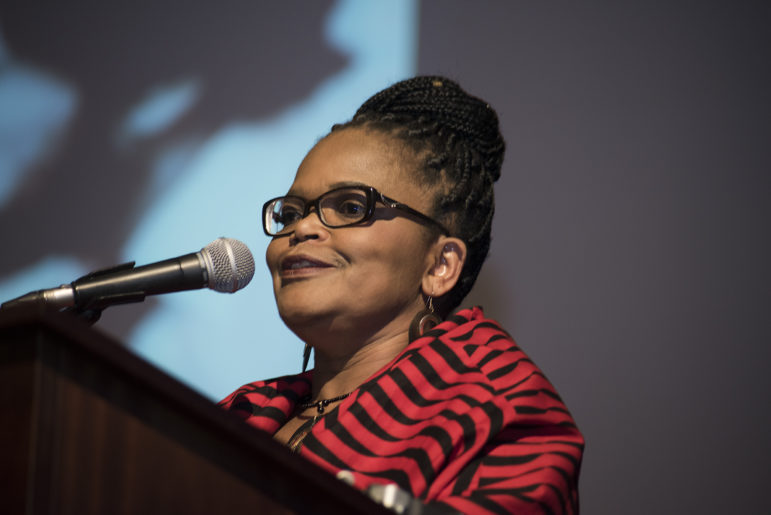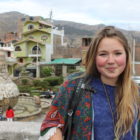
The Messenger from Zimbabwe: Beatrice Mtetwa the at Carlos Cardoso Lecture. Photo: Madelene Cronjé
“Don’t Shoot the Messenger” was the theme of this year’s Annual Carlos Cardoso Memorial lecture, which was held Thursday night during #GIJC17 at the University of the Witwatersrand in Johannesburg.
Cardoso was a Mozambican journalist who was assassinated in the streets of Maputo in 2000 while investigating the country’s biggest bank fraud, involving senior political figures. While the annual event began as a conversation about solidarity movements in Southern Africa, over the years has evolved into a wider discussion about investigative journalism and the war on free speech. And that made this year’s keynote speaker the perfect — and timely — fit.
Beatrice Mtetwa is a human rights attorney in Zimbabwe, a country where journalists have been frequently harassed and persecuted — and which, as of this week, is in the middle of what is being interpreted as a “soft coup” which could end up seeing the end of the reign of 93-year old President Robert Mugabe, who has been in power since the country’s independence in 1980. Over the years, Mtetwa has defended journalists against Mugabe’s government at great personal risk, winning the the International Press Freedom Award from the Committee to Protect Journalists in 2005.
Mtetwa offered some advice to the investigative journalists from around the world who gathered in at the university’s Great Hall to hear her speak.
Investigative Journalism in the Developing World
We have seen in South Africa how the power of the media has brought international institutions to their knees. South Africa has a wonderful constitution, but this constitution won’t come into effect without investigative journalists.
Hit Them in the Pocket
When you follow the politicians there is also the need to look at the private sector players.
Collaborate on Media Freedom
The law and journalism intersect far more than you realize. When you read The President’s Keepers for instance, the author did a lot of (investigating) before publishing the book. He knew what he could do if…they threatened to arrest him, prosecute him, to sue him, to stop publication of the book…because the publisher and the lawyers and the journalist had all worked together. If we are to do a great job, it is sometimes useful to collaborate a little more.
The full Facebook Live stream of “Don’t Shoot The Messenger” can be found here.
 Zita Campbell graduated from Otago University, New Zealand, in 2015 with a double major in theatre, film and media, completing the last year of her bachelor’s degree at the University of California Santa Cruz. She has worked as a freelancer in London and plans to specialize in longform and documentaries on humanitarian and environmental issues.
Zita Campbell graduated from Otago University, New Zealand, in 2015 with a double major in theatre, film and media, completing the last year of her bachelor’s degree at the University of California Santa Cruz. She has worked as a freelancer in London and plans to specialize in longform and documentaries on humanitarian and environmental issues.

Madelene Cronjé is an independent photographer based in Johannesburg, South Africa. Formerly a staff photographer the Mail & Guardian, she specializes in photojournalism and editorial portraiture.
